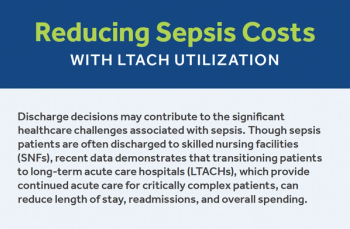
Russell Graney, founder and CEO of Aidin, believes that his company can transform post-acute care and its referral process far more efficient.


Russell Graney, founder and CEO of Aidin, believes that his company can transform post-acute care and its referral process far more efficient.

A mobility program was adapted in a study to address the needs in patients of the Veterans Health Administration, as the lack of evidence-based programs targeting veteran’s mobility is a critical and significant gap in community living centers.

Direct and post-acute care workers experience many challenges in the workday. Their bodies are subject to physically demanding work and experience emotional stress with only median wages and little to no opportunity for career advancement.

Ensuring that patients with serious conditions have access to LTACH care can help improve their outcomes. Discover the distinctions in patient conditions treated at LTACHs compared to SNFs

Audits and following prevention “bundles” were among the steps infection control leaders took at the Sparrow Health System long-term acute-care hospital in Lansing, Michigan.


A study in this month's Health Affairs shows that Medicare Advantage penetration has a ripple effect on the patterns of postacute care usage among those in traditional Medicare. As Medicare Advantage penetration increased, use of postacute care services by beneficiaries in traditional Medicare decreased.

One trend to keep an eye on is the establishment of “care traffic control” centers to remotely monitor patients and use home-based insights to identify risks and inform care plans.

Health systems with more primary care doctors and palliative care services saw fewer people coming back to the hospital, a new study finds.

Those who received an automated call were less likely to go back to the hospital, researchers found. Those patients were also more likely to have followed up with a clinician.

Researchers analyzed studies from several countries and found a link between improved transitional care for those in long-term care facilities and a lower risk of a return trip to the hospital.

Some patients aren’t getting follow-up phone calls, and others lack transportation for appointments with physicians. A new study highlights problems in post-acute care.

Those who participated in rehabilitation programs were less likely to die and had improved overall function, a recent study finds.

A new report says the nation must take action to bring about the necessary changes. An industry group says it’s the most comprehensive study of nursing homes in more than three decades.

Patients are likely to continue to choose to recover at home rather than go to skilled nursing facilities, according to a new report by Trella Health.

Based on several reports in the last couple of years, it’s been a standout that healthcare consumers’ engagement in their own healthcare will drive better outcomes and reduce care costs. With that being said, consumer experience has come under major focus across the industry as a key business driver.

Our survey results reflect the reality that American healthcare is inching not galloping to value-based care.

The Oncology Care Model (OCM) was CMS’ main attempt to usher value-based care into oncology. What will come after OCM is unclear as the future of successor, Oncology Care First, is now very much in doubt.